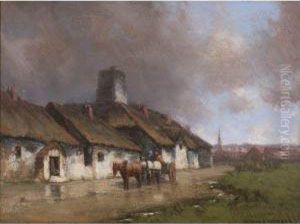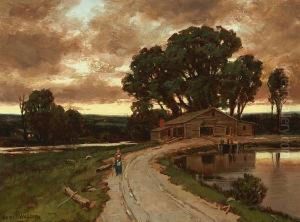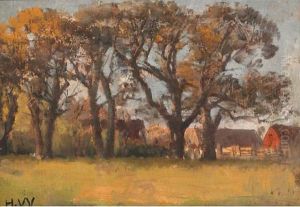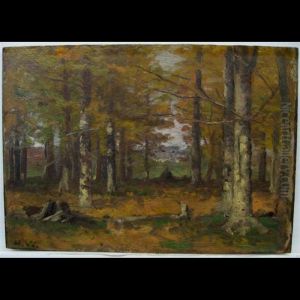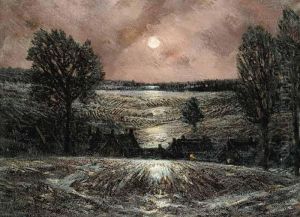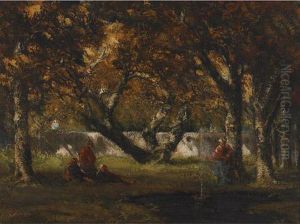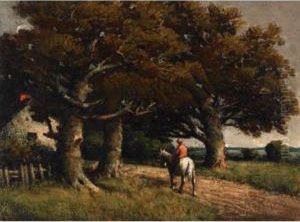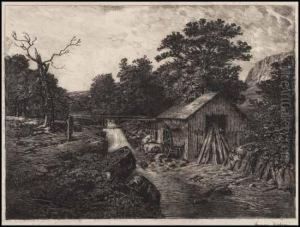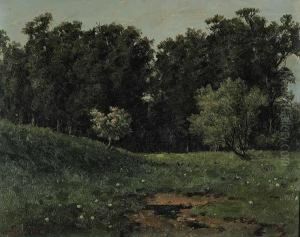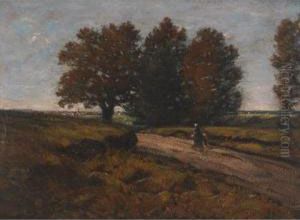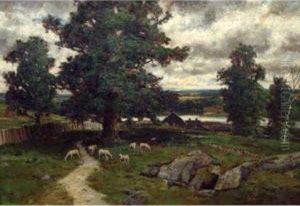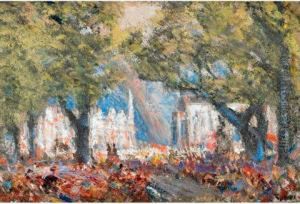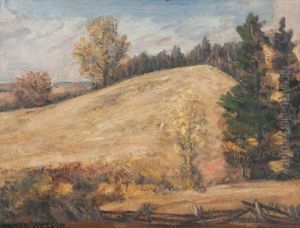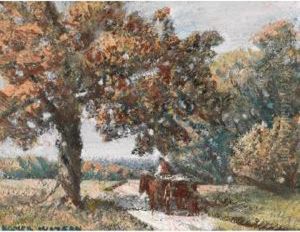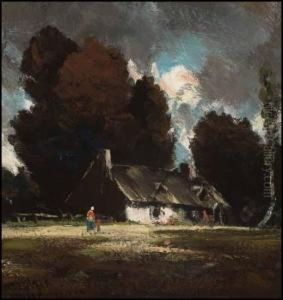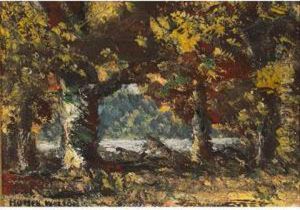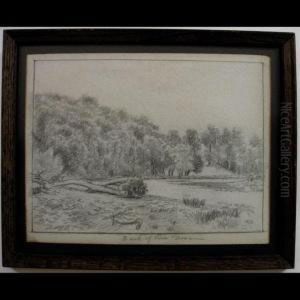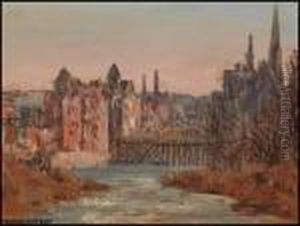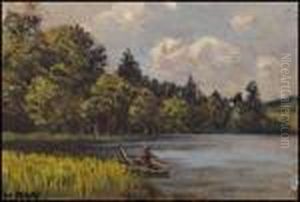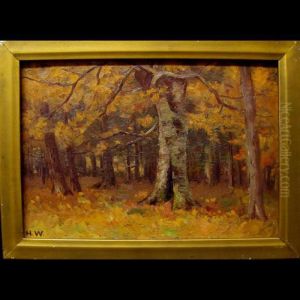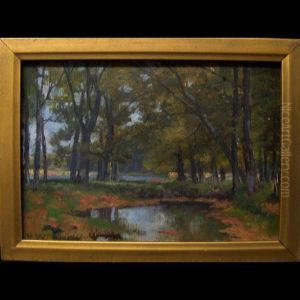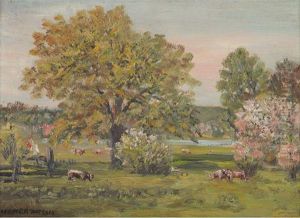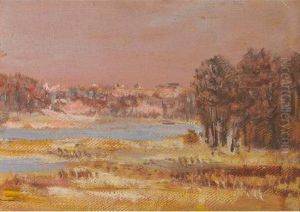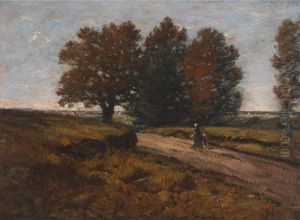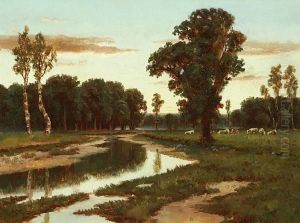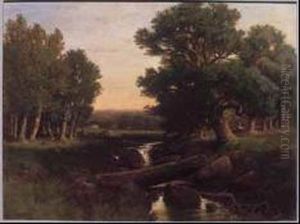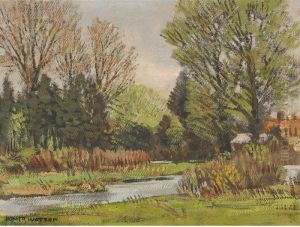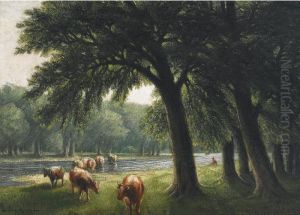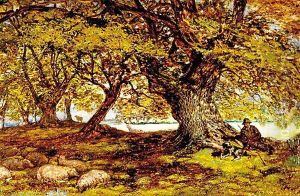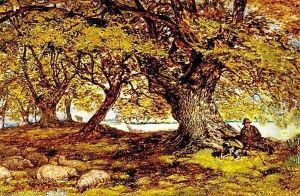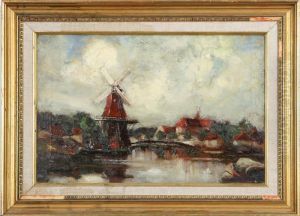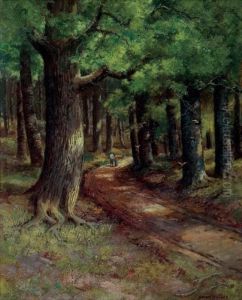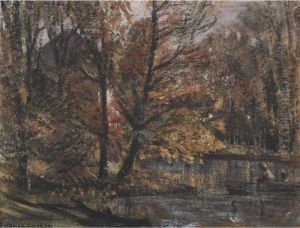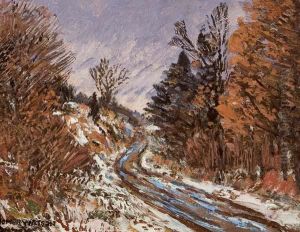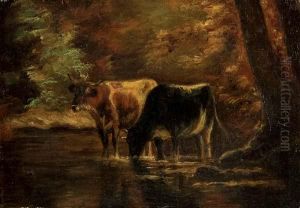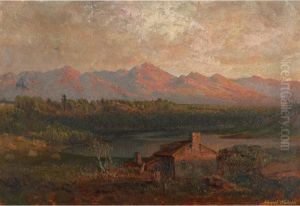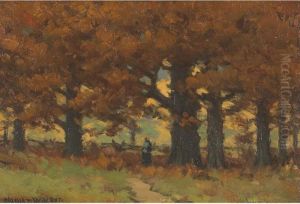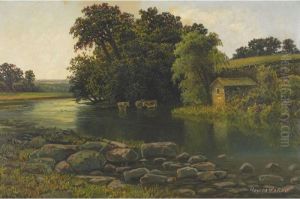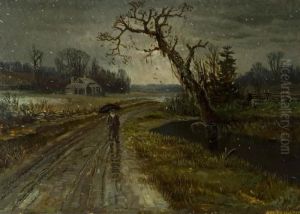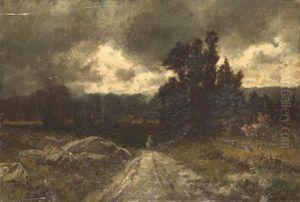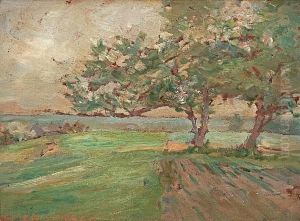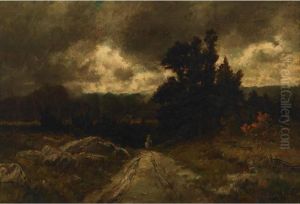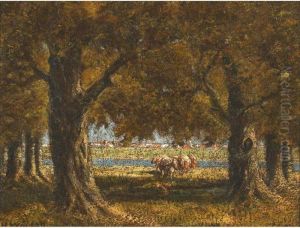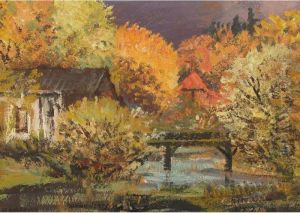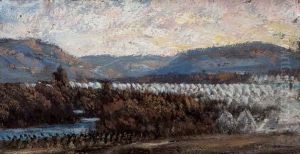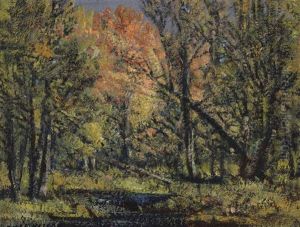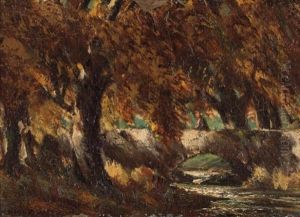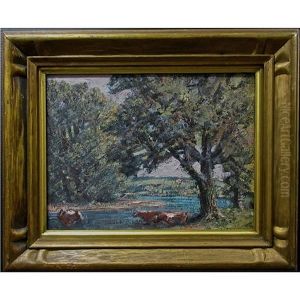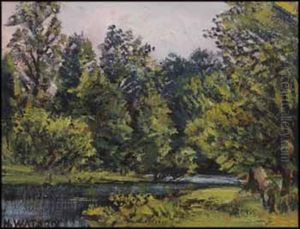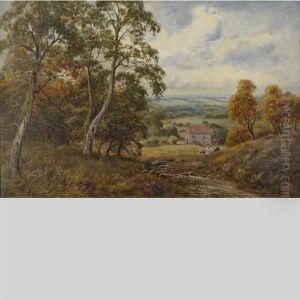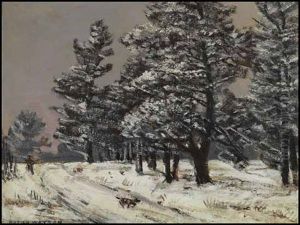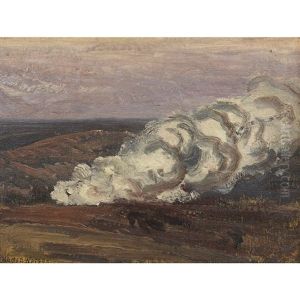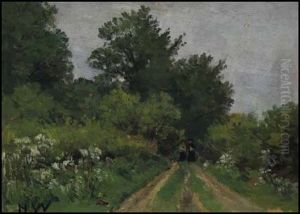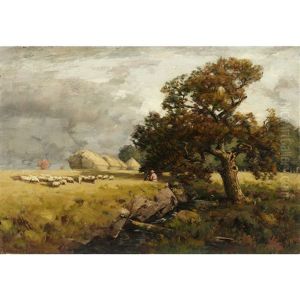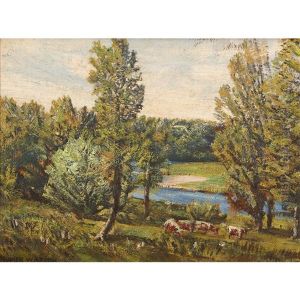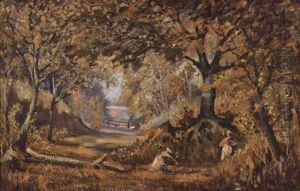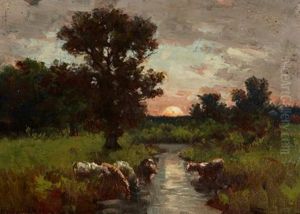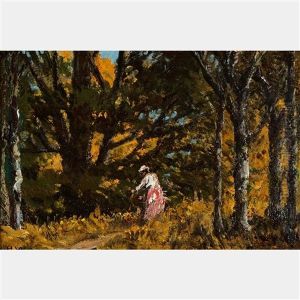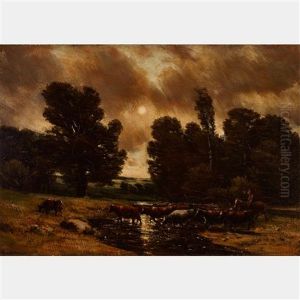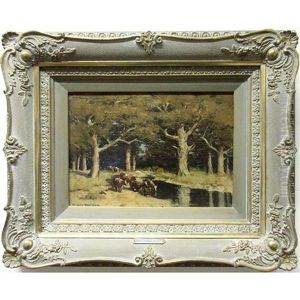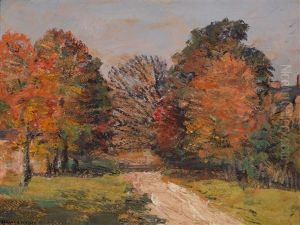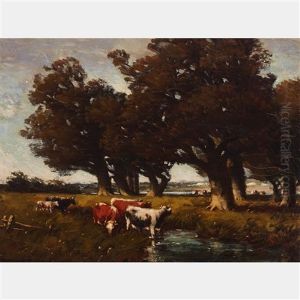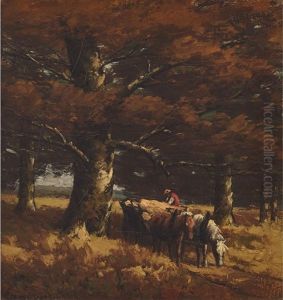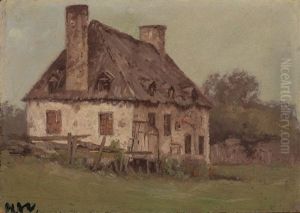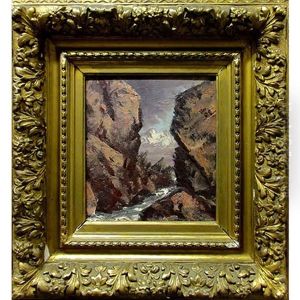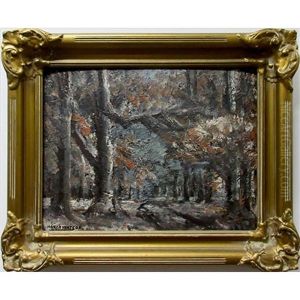Homer Ransford Watson Paintings
Homer Ransford Watson was a Canadian landscape painter born on January 14, 1855, in the village of Doon, near Kitchener (then known as Berlin), Ontario. Watson was predominantly self-taught, although he did receive some informal training from local artists. He was deeply influenced by the works of the great British landscape painters, especially John Constable, whose pastoral scenes would become a significant inspiration for Watson's own creations.
Watson's artistic career began to flourish in the late 1870s when his work attracted the attention of prominent figures in the Canadian art world, as well as patrons and collectors. His painting 'The Pioneer Mill' won a prize at the 1880 Toronto Industrial Exhibition, which helped establish his reputation. He became known for his romantic depictions of the Canadian wilderness, often imbued with a sense of nostalgia and a mourning for the passing of the age of pioneering in Canada.
In 1882, Watson traveled to Europe, where he spent time in London and Scotland, further absorbing the European approach to landscape painting. Upon his return to Canada, his work continued to evolve, and he became a central figure in the Canadian art scene, serving as a bridge between the traditional and the emerging Canadian artistic identity.
Watson's success peaked in the late 19th and early 20th centuries. He was made a member of the Royal Canadian Academy of Arts and his paintings were exhibited across Canada, the United States, and Europe. His work was often characterized by a melancholic tone, as he emphasized the transient beauty of the natural world and the encroachment of industrialization.
Throughout his life, Watson was an active member of the Canadian artistic community, advocating for the recognition and development of Canadian art. He was a founding member of the Canadian Art Club in 1907. Watson's legacy is preserved in part through the Homer Watson House & Gallery in his hometown of Doon, which serves as a museum and gallery dedicated to his life and work.
Homer Watson passed away on May 30, 1936, leaving behind a rich body of work that continues to be celebrated for its contribution to Canadian landscape painting and its influence on subsequent generations of Canadian artists.
